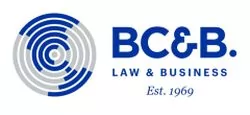It is well known that software-related inventions and particularly computer programs can be protected by means of copyright. The ground for granting such copyright protection to computer programs resides on the fact that they may be considered in some manner as comparable to "literary" works.
However, certain types of very important inventions that cannot be regarded as duly protectable by means of copyright, inasmuch as they also include functional characteristics. Copyright protection of the software or computer program which forms the basis of such inventions has been regarded in general as absolutely inadequate, because even though the computer program could be protected through copyright, the practical application of the invention itself would not be protected in a straightforward manner at all.
Therefore, in some of the highly industrialized countries this problem has been recently solved by implementing certain rules that render computer-related inventions, particularly those based on the use of software, subject to receiving true patent protection.
In some countries such as the United States, patent protection is presently considered as the most appropriate protection for certain inventions that are based on the use of a predetermined software. A set of rules for examining computer-related inventions has been already instituted and patents are presently fully available to protect certain kinds of software.
In Mexico, however, it would seem at first sight that such kind of patent protection for software is not available, inasmuch as the Mexican Patent Law of 1994, which was drafted in order to comply with the provisions of the North American Free Trade Agreement (NAFTA), of which Mexico is a party, still expressly considers computer programs as non patentable inventions.
Regardless of the above express prohibition which in principle prevents the grant of Mexican patents covering software, in practice it is possible to protect certain types of inventions which rely on software or computer programs, provided that said inventions are described as combinations of hardware and software that represent a specific machine or manufacture, or provided that they furnish a series of steps to be performed on a computer to achieve a practical and novel application for solving a practical problem.
The Mexican Patent Office (IMPI) has not developed any standard guidelines for this purpose, although the examination procedure in this field is being applied by the examiners in charge of this type of inventions in a very pragmatic manner, which gives applicants the opportunity to discuss said inventions and, if properly handled, the applications can be approved if the Examiners are persuaded that the invention is novel, has utility and represents statutory subject matter.
The secret of obtaining good patent protection in the field of computer-related inventions in Mexico heavily depends now more than ever in a properly drafted specification that may clearly show to the examiner that the invention covered by the corresponding patent application is one that should be considered as containing statutory subject matter. The drafting of the claims is also very important, because they must claim a very well defined structure or a very well defined series of steps that will accomplish the practical results that become mandatory to give patentability to the invention claimed.
Functional computer software, therefore, may be regarded as perfectly patentable in Mexico, provided that it is properly disclosed and properly claimed. Even software inventions that are highly mathematical in nature can be regarded as potentially capable of receiving patent protection, if the practical significance of the mathematical analysis is explained in a manner that may distinguish the invention from a mere computer program.
The content of this article is intended only to provide general guidelines related to this particular matter. For your specific circumstances, full specialist advise is recommended.

